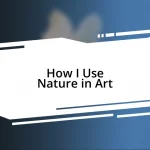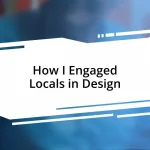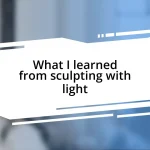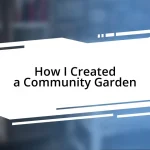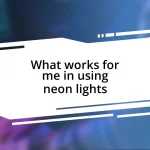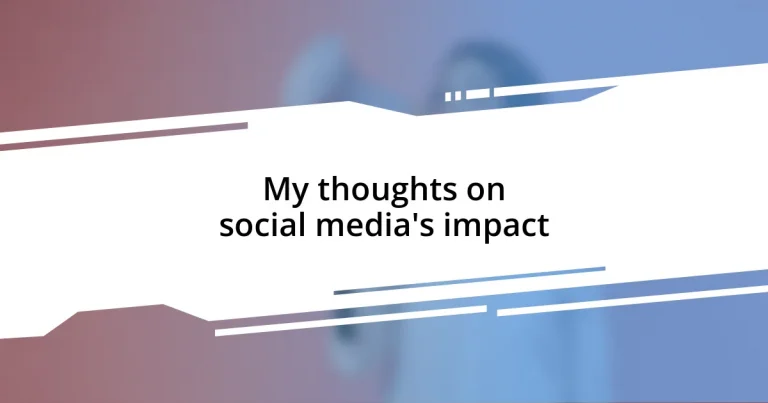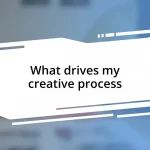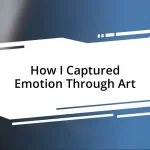Key takeaways:
- Social media serves as a pivotal connector, fostering diverse voices and community engagement while also shaping individual perceptions and behaviors.
- While it offers positive effects like community building and educational resources, social media can negatively impact mental health through comparison culture, cyberbullying, and addiction.
- Balancing online and offline life is essential for mental well-being, as excessive reliance on digital validation can undermine genuine self-worth and relationships.
- The future of social media is likely to emphasize authenticity and meaningful connections, moving towards deeper interactions over superficial engagements.
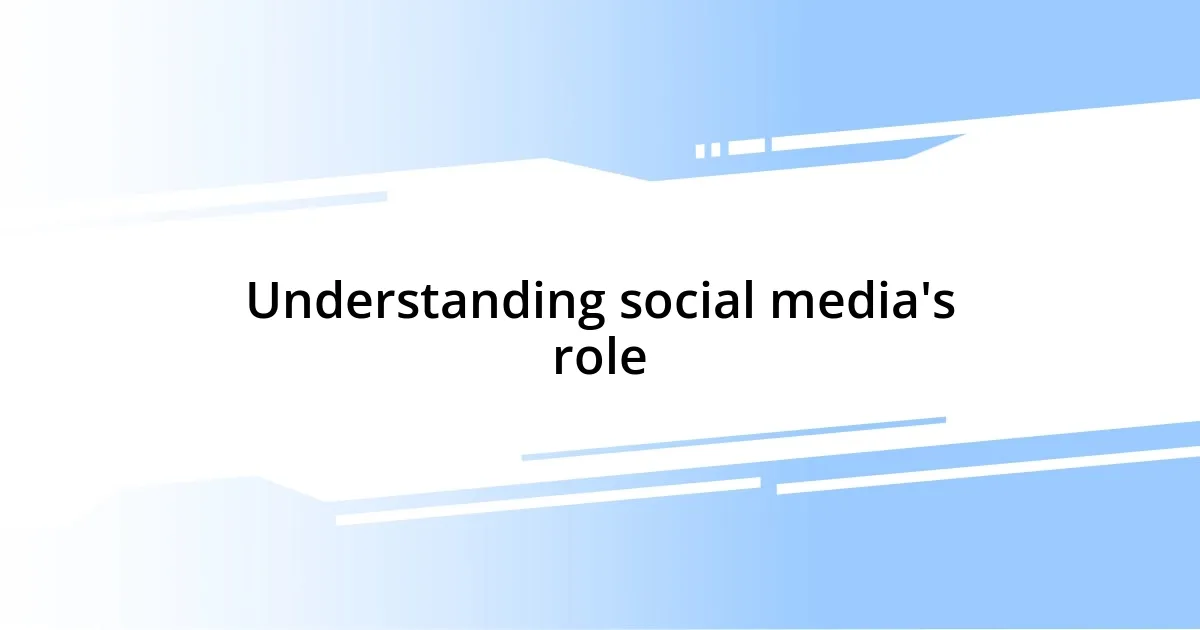
Understanding social media’s role
Social media serves as a vital connector in our lives, shaping not just how we communicate, but also how we perceive the world around us. I often reflect on my own experiences—like the moment I reconnected with a childhood friend online. That simple click transformed a long-lost connection into a vibrant discussion that rekindled cherished memories. Isn’t it fascinating how a single platform can bridge decades of time and distance?
As I delve deeper into social media’s influence, I can’t help but notice its role in amplifying diverse voices. It’s heartening to see communities come together, sharing stories that might otherwise go unheard. For example, during the recent global movements for social justice, platforms like Twitter acted as a rallying point, enabling individuals to raise awareness and foster dialogue. Can we truly grasp the power of such connectivity in driving societal change?
Moreover, social media isn’t just about connection; it also shapes our perceptions and behaviors. I remember when I first encountered the concept of “FOMO” (Fear of Missing Out) through posts showcasing seemingly perfect lives. It made me question my own experiences and ignite a desire for more—but not necessarily in a healthy way. Have you ever felt that pull to keep up with the digital highlight reels of others? This intricate layer of influence is what makes understanding social media’s role so essential in navigating our daily lives.
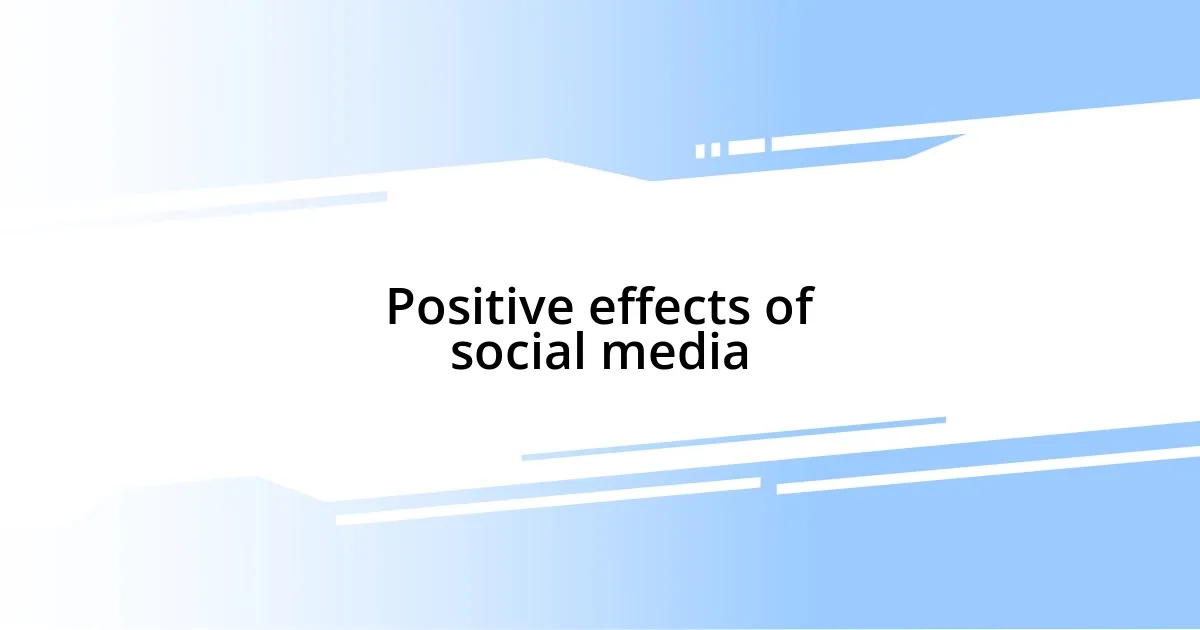
Positive effects of social media
Social media has undoubtedly fostered a sense of community that transcends geographical boundaries. I remember joining an online support group for individuals dealing with anxiety and depression. The instant empathy and shared experiences I encountered there made me feel less isolated. This sense of belonging can be profound; it’s as if I’ve found a family in a virtual space that understands what I’m going through.
Additionally, I find that social media excels as an educational tool. Just last week, I participated in a live art workshop on Instagram, discovering new techniques that I had never tried before. The remarkable thing is that these platforms often host experts sharing their knowledge in real-time, making information and learning opportunities more accessible than ever. Have you ever stumbled upon a life hack or a new skill through social media? It’s incredible how a quick scroll can lead to personal growth or inspiration.
Lastly, businesses have harnessed social media to connect authentically with their audiences. I’ve seen local restaurants use platforms like Facebook to promote community events and gather positive reviews. This direct engagement not only boosts their visibility but also fosters loyalty among customers. When businesses genuinely interact with their consumers, it creates a sense of partnership that’s refreshing in our fast-paced world.
| Positive Effects | Examples |
|---|---|
| Community Building | Online support groups for mental health |
| Educational Resources | Live workshops and tutorials |
| Business Engagement | Local businesses promoting through social media |
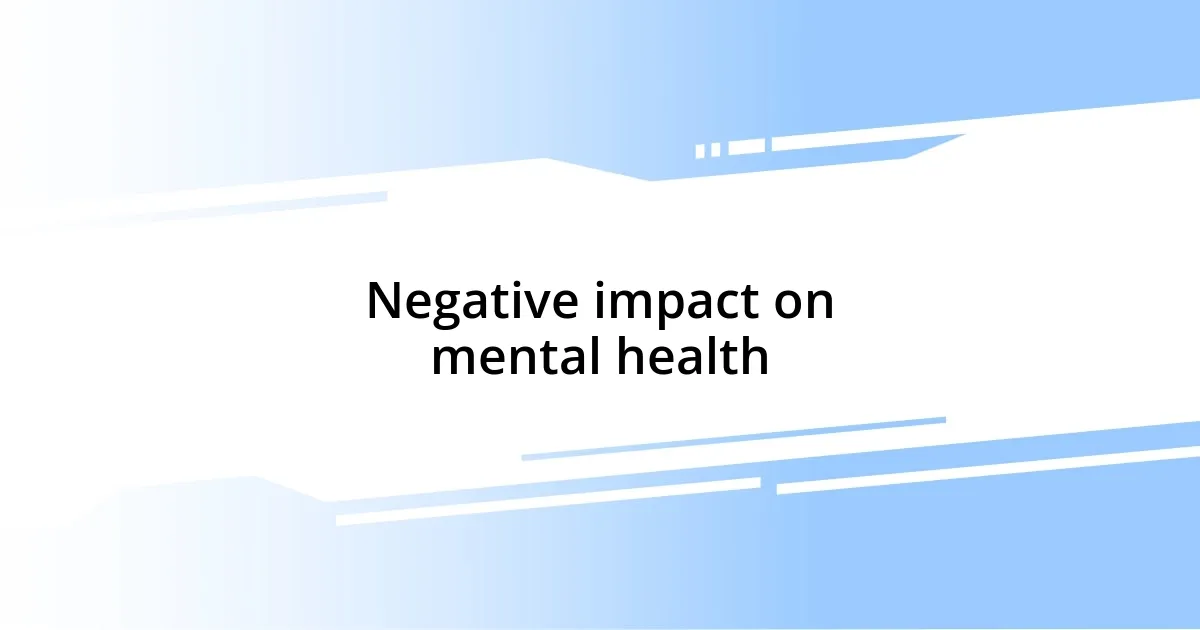
Negative impact on mental health
I’ve often noticed how social media can cast a long shadow over mental health. While scrolling through a feed packed with polished lives and immaculate selfies, it’s easy to feel inadequate. There was a time when I found myself feeling anxious because I didn’t measure up to those curated images. It turned out that the more I engaged with these platforms, the deeper that pit in my stomach grew.
Here are a few negative effects I believe are crucial to acknowledge:
- Comparison Culture: Constantly seeing others’ seemingly perfect lives can foster feelings of inadequacy.
- Cyberbullying: Negative comments and harassment can lead to serious emotional distress.
- Fear of Missing Out (FOMO): The urge to be in-tune with everything can create stress and anxiety about not participating.
- Addiction: Excessive use can lead to neglecting real-life relationships and responsibilities.
- Sleep Disruption: Late-night scrolling can interfere with healthy sleeping patterns, impacting mental well-being.
In sharing these insights, I think it’s important for us to recognize the toll that these platforms can take. It’s not always easy to escape that cycle, but identifying these impacts is a significant first step toward nurturing a healthier online experience.
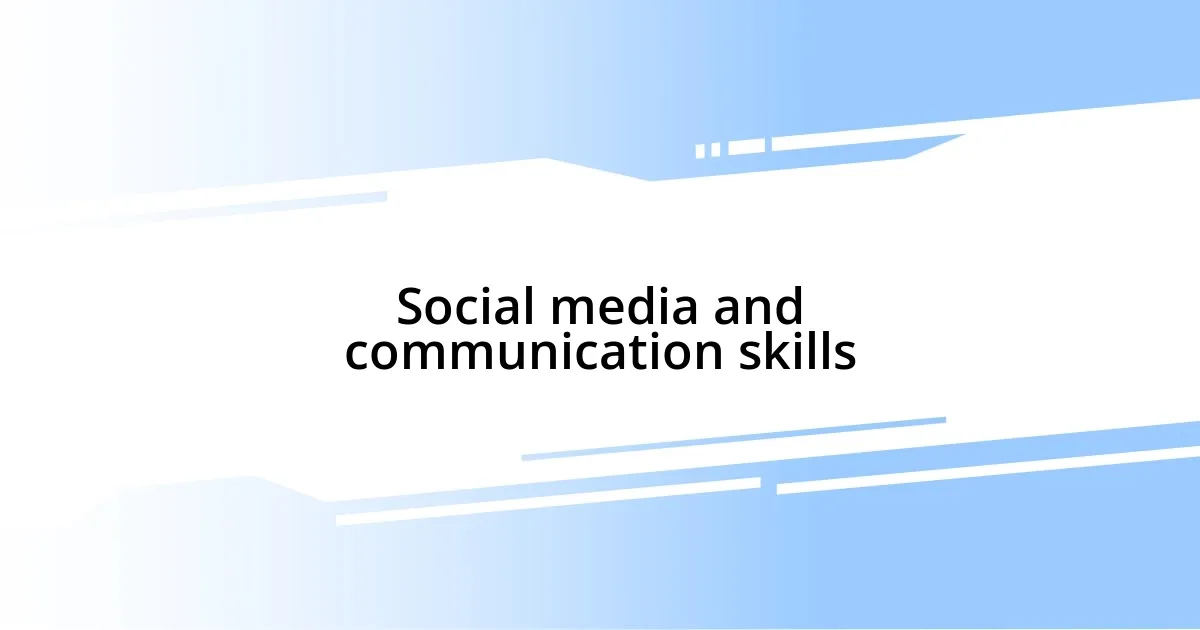
Social media and communication skills
I’ve realized that social media significantly alters how we communicate. For instance, when I first joined Twitter, I loved how quickly I could connect with people worldwide. However, I noticed that the brevity of tweets made conversations feel less personal; it’s all about packing your thoughts into just a few characters. Have you ever felt that a heartfelt message got lost in the digital noise? It often leaves me wondering if we’re sacrificing depth for speed.
Moreover, I’ve found that while social media can enhance connectivity, it sometimes stifles our ability to engage in face-to-face interactions. There was a time when I avoided meeting friends in person because I was more comfortable chatting online. This reliance on digital communication made reconnecting in real life a bit awkward. It’s fascinating how something meant to bring us closer can create distance in our personal interactions, don’t you think?
Lastly, I can’t ignore the impact of emojis and memes in our daily exchanges. They can add humor or clarity to a message, but at times, I feel they undermine the richness of human expression. I remember trying to convey a complex emotion through a few emojis and realizing that the essence of what I wanted to say was completely lost. Isn’t it intriguing how a simple symbol can sometimes replace genuine conversation, yet still leave us longing for more authentic connection?
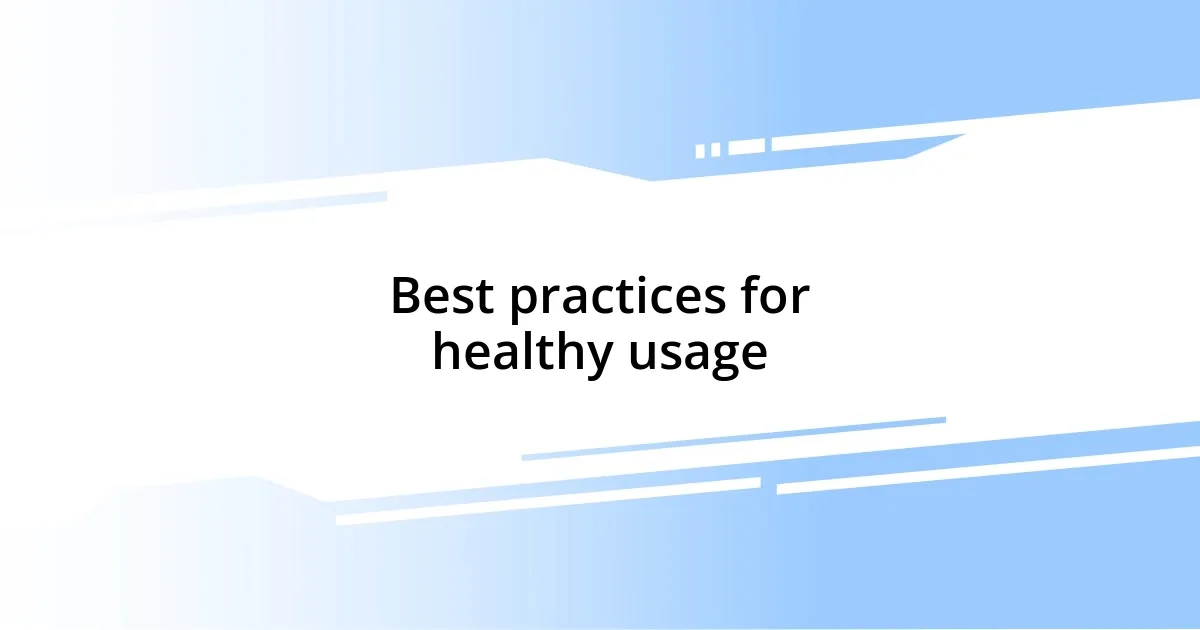
Best practices for healthy usage
Taking control of our social media usage is essential for maintaining a healthy balance in our lives. I’ve personally found that setting specific time limits can drastically change my online experience. For example, I decided to limit my scrolling to just 30 minutes a day, and while it was a challenge at first, the extra time I gained for reading or going outdoors felt incredibly rewarding. Have you ever noticed how much time you lose to mindless scrolling?
In addition to time limits, I think it’s wise to curate your feed intentionally. When I began unfollowing accounts that sparked negativity or jealousy within me, I noticed a positive shift in my mood. Instead of feeling anxious about what others were doing, my social media became a tool for inspiration and positivity. It’s empowering to create a digital environment that uplifts rather than weighs down your spirit, don’t you agree?
Lastly, I can’t emphasize enough the importance of occasional digital detoxes. One weekend, I turned off all notifications and tucked my phone away. The peace I experienced was profound; I was more present with my thoughts and those around me. It made me realize how intertwined our lives have become with our devices. Have you ever tried stepping away from social media completely? It’s an enlightening experience that can help you reconnect with yourself in a meaningful way.
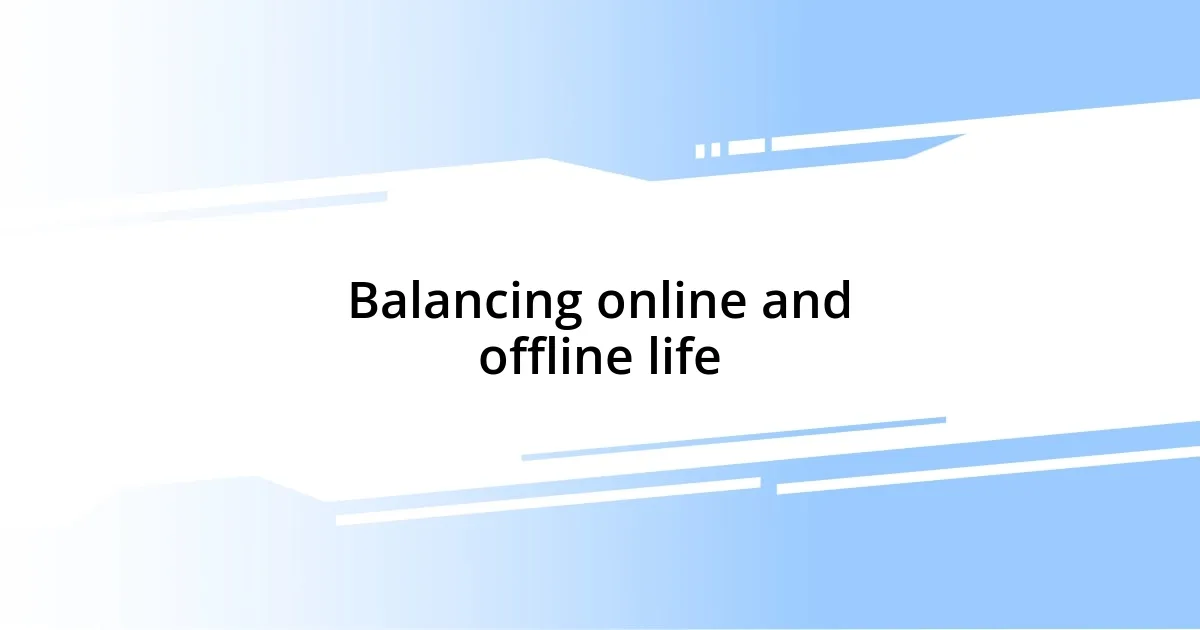
Balancing online and offline life
Balancing online and offline life has become more crucial than ever in our hyper-connected world. I remember a weekend spent with friends where we all agreed to leave our phones in another room. Initially, it felt strange not to check notifications, but soon I found myself fully immersed in the laughter and conversations. Have you ever experienced that kind of freedom? It’s such a refreshing reminder of how valuable genuine connections are.
I’ve also noticed that while we often seek validation through likes and shares, this can create an unhealthy feedback loop. During a particularly low point in my life, I relied heavily on social media for reassurance. The moment I stepped back, I realized how much I had traded my self-worth for those digital affirmations. What if we focused on building self-esteem through real-life experiences rather than online interactions? It’s a powerful shift that can transform how we view ourselves.
Sometimes, I ponder the idea of being present in both worlds. Balancing the joys of online engagement while cherishing offline moments can be exhilarating. Just last month, I took a hike and made it a point to leave my phone behind. The serenity of nature and the tranquility of the experience made me reflect on how often I miss these moments by being glued to a screen. Isn’t it interesting to think about all the beauty we often overlook while scrolling?
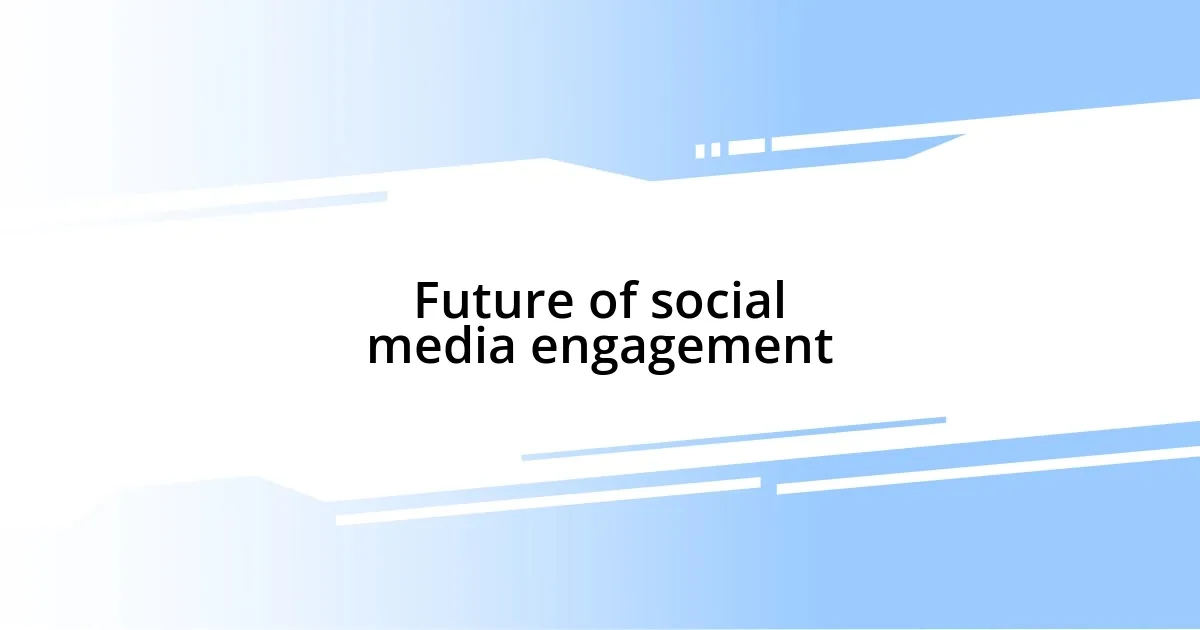
Future of social media engagement
The future of social media engagement is likely to revolve around authenticity and meaningful connections rather than mere likes and views. I recently connected with a group of friends on a more personal level through a private group chat where we share our challenges and achievements. It felt refreshing to move beyond the public façade and really talk about what matters to us. Isn’t it ironic how social media can sometimes foster loneliness while providing a platform for connection?
As platforms evolve, I believe we’ll see a shift towards features that encourage deeper interaction. I recall participating in a live Q&A session with a favorite content creator. The real-time engagement created a sense of community that felt so much more powerful than just scrolling through their posts. How would it change our social media experiences if we sought more of those moments where we can engage directly with others? I suspect that the answer lies in prioritizing dialogue over spectacle.
Looking ahead, I also foresee that tools will emerge to enhance our ability to connect authentically. Recently, I started using video messages to communicate with friends and family. There’s something special about seeing someone’s expressions and hearing their voice, making the conversation feel more genuine. Could embracing more dynamic forms of communication reshape our relationships online? I genuinely believe it could pave the way for a more human-centered social media landscape.
